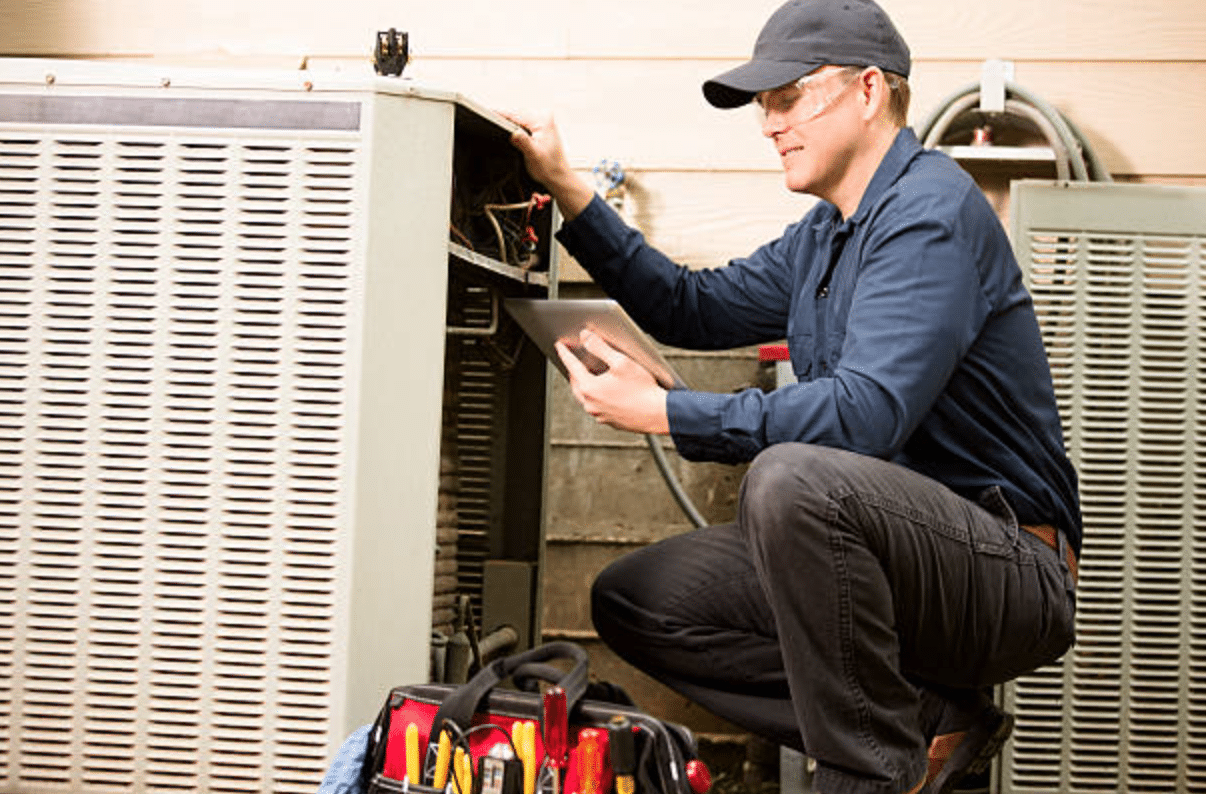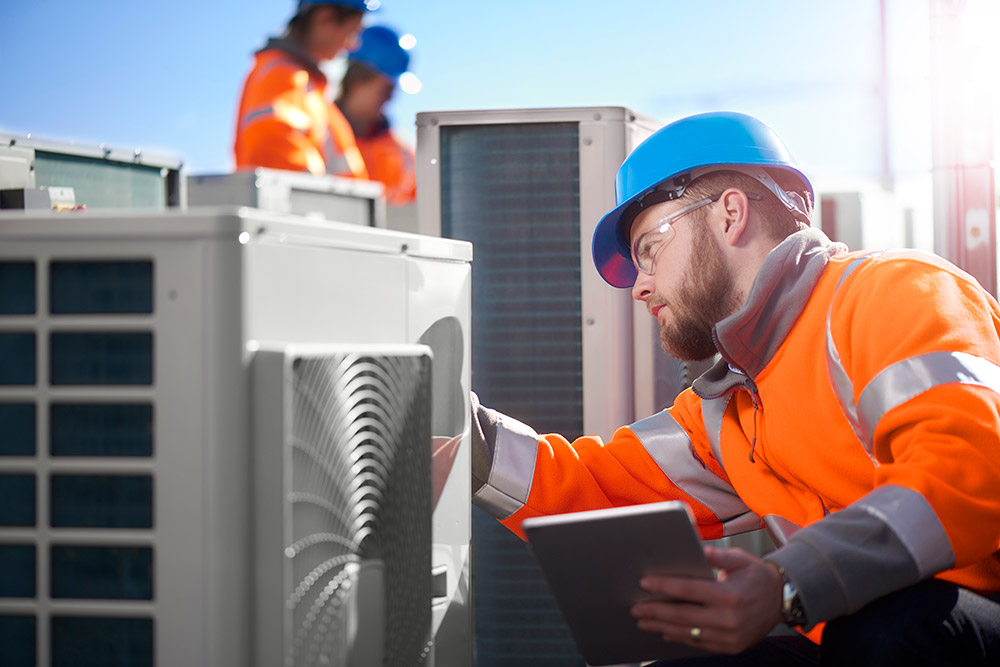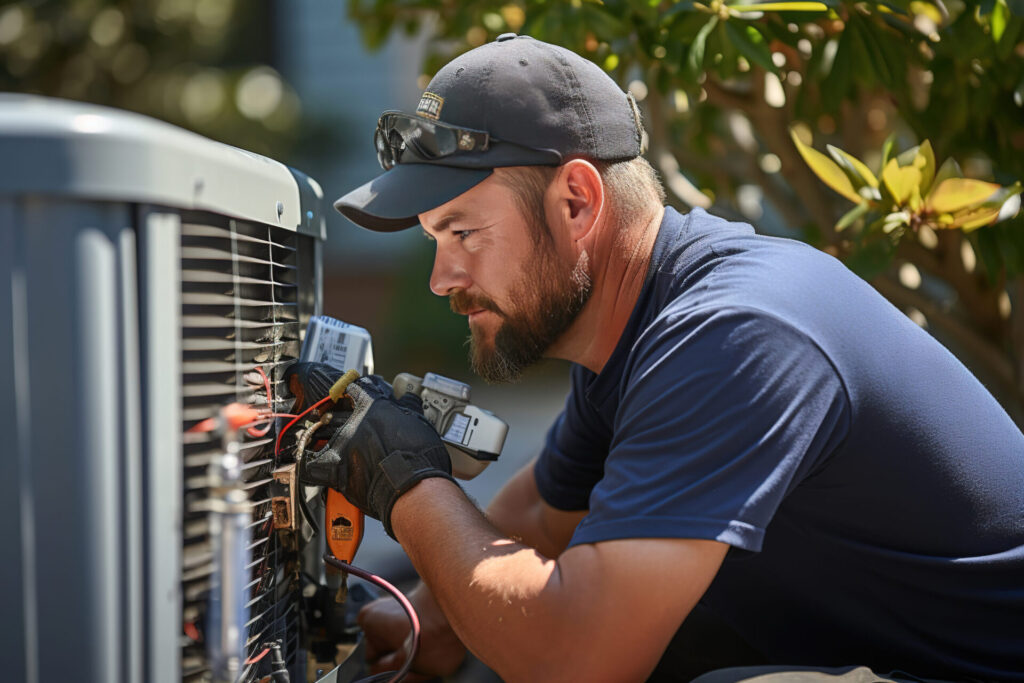Maintenance and Care of HVAC Systems: How to Maintain Your System and Save Money
What is HVAC Maintenance & Why Does It Matter?
Heating, Ventilation, and Air Conditioning (HVAC) systems are essential for maintaining indoor comfort in homes, commercial buildings, industrial facilities, and retail spaces. These systems regulate temperature, improve air quality, and ensure proper airflow. However, like any complex machinery, HVAC systems require regular maintenance to function efficiently and avoid costly breakdowns.
HVAC maintenance is a combination of inspections, servicing, cleaning, and minor repairs to keep the system running at its highest efficiency. If you don’t do routine maintenance your HVAC can see higher energy bills, decreased efficiency, poor indoor air quality, and unexpected failures, most often leading to expensive repairs or even complete system replacement.
By doing regular maintenance routinely, you can significantly extend the lifespan of your HVAC system, save money, and ensure consistent indoor temperatures all year long. In this blog, you’ll learn about the key aspects of HVAC maintenance and its benefits, and when it’s time to call in a professional to get the job done right.
Why is HVAC Maintenance Important?
Routine HVAC maintenance is a must to keep your system running properly, reliably, and long-lasting. If not maintained properly, the buildup of dirt, clogged filters, and broken parts can all negatively affect the performance of your system, increase energy bills, and cause unnecessary repairs.
Extends the Lifespan of Your System
HVAC systems are an expensive purchase and regular maintenance can prevent premature wear and tear. Just by taking care of small issues right away you’re preventing massive breakdowns and extending the lifespan of the system by several years.
Improves Energy Efficiency & Lowers Utility Bills
A well-maintained HVAC system uses less energy to heat or cool your home or business. Dirty filters and clogged air ducts cause the system to work harder, which increases the amount of electricity/gas used. Regular tune-ups will improve performance and lower monthly heating and cooling bills.
Enhances Indoor Air Quality
With time dust, allergens, mold, and bacteria build up in HVAC systems and produce poor air quality conditions that can cause allergies, respiratory problems, and discomfort. Regular cleaning of filters, air ducts, s, and vents will result in cleaner and healthier airflow.
Prevents Unexpected Breakdowns
Failing HVAC systems often have warning signs – strange noises, poor airflow, or inconsistent heating/cooling. Regular maintenance will flag any potential problems early, and prevent sudden failures during particularly extreme weather conditions — when you need it most.
Ensures Safety & Compliance
Gas furnaces, electrical connections refrigerant leaks can all be real health hazards if left unchecked. Regular HVAC inspections can identify potential hazards and ensure your system meets safety requirements and building codes.
How Often Should You Service Your HVAC System?
Regular HVAC servicing is essential to maintaining peak performance, energy efficiency, and system for most homes and businesses, It’s recommended to schedule HVAC Services from HVAC NOW California at least twice a year—once for your air conditioning system and once for your heating system. This proactive approach ensures that both systems function efficiently before they are heavily used during extreme weather conditions.

General HVAC Maintenance Schedule
Air Conditioner Maintenance: Spring Tune-Up
Your air conditioning unit should be inspected and serviced in the spring, ideally before temperatures start rising. Air conditioning service ensures that your AC is clean, properly calibrated, and free from any issues that could reduce efficiency or cause a breakdown during the hot summer months. A professional technician will:
- Check and replace air filters to maintain airflow and indoor air quality.
- Inspect refrigerant levels to ensure optimal cooling performance.
- Clean condenser coils to prevent overheating and inefficiency.
- Examine electrical connections for safety and proper operation.
- Calibrate the thermostat to ensure accurate temperature control.
Heating System Maintenance: Fall Tune-Up
Your furnace or heating system should be serviced in the fall before winter arrives. San Diego heating service helps ensure your system is ready to provide consistent and reliable warmth throughout the colder months. During a fall HVAC checkup, a professional will:
- Inspect and clean the burner and heat exchanger for safety and efficiency.
- Test ignition systems and pilot lights to prevent malfunctions.
- Check for carbon monoxide leaks to ensure safe operation.
- Replace or clean air filters for proper airflow and efficiency.
- Lubricate moving parts to prevent wear and tear.
Year-round Preventive HVAC Maintenance
While seasonal tune-ups are critical, homeowners should also perform basic HVAC maintenance throughout the year to keep their systems running smoothly. This includes:
- Checking and replacing air filters every 1-3 months.
- Keeping vents and registers clean and unobstructed.
- Monitoring thermostat settings to ensure efficiency.
- Listening for unusual noises that may indicate a problem.
What Happens If You Skip HVAC Maintenance?
Neglecting regular HVAC servicing can lead to:
- Higher energy bills due to reduced efficiency.
- Unexpected system breakdowns during peak usage.
- Poor indoor air quality from dust and allergens.
- Expensive repairs that could have been prevented.
- A shorter lifespan for your HVAC system.
By following a consistent HVAC maintenance schedule, you can prolong the life of your system, improve efficiency, and prevent costly repairs. Scheduling professional tune-ups in spring and fall ensures that your heating and cooling systems are always ready when you need them the most.

HVAC Maintenance: How to Extend the Life of Your System and Save Money
Your HVAC system is the heart of your home’s comfort, regulating temperature year-round. But without regular maintenance, it can lose efficiency, break down, or even require costly repairs. In this guide, we’ll explore essential HVAC maintenance tasks, seasonal checklists, cost-saving benefits, and when to call in the professionals.
Essential HVAC Maintenance Tasks
Regular HVAC maintenance is crucial to keeping your system efficient and long-lasting. Below are some key tasks that should be performed consistently to maintain peak performance.
1. Change Air Filters Regularly
Your HVAC system’s air filter traps dust, allergens, and other airborne particles, preventing them from circulating in your home. Over time, clogged filters can restrict airflow, forcing your system to work harder and increasing energy consumption.
- How often? Change filters every 1-3 months, depending on usage and air quality.
- Benefits: Improved air quality, increased efficiency, and reduced strain on your system.
2. Clean the Outdoor Unit (Condenser)
The outdoor condenser unit plays a vital role in heat exchange. Over time, dirt, leaves, and debris can accumulate, obstructing airflow and reducing efficiency.
- Maintenance Tip: Clean the condenser every few months, especially after storms or heavy pollen seasons.
- How? Use a garden hose to rinse off dirt and clear any debris around the unit.
3. Check Thermostat Settings
Your thermostat controls your HVAC system’s operation. Ensuring proper thermostat installation and settings can help maintain comfort while reducing energy costs.
- Upgrade to a Smart Thermostat: Programmable thermostats optimize temperature settings automatically.
- Recommended Settings: Keep the thermostat at 78°F in summer and 68°F in winter for energy savings.
4. Inspect and Clean Air Ducts
Dirty air ducts can circulate dust, allergens, and pollutants, reducing air quality and system efficiency. Our ductwork HVAC services in San Diego ensure efficient airflow and system performance.
- When to Clean? Every 3-5 years, or more frequently if you have pets, allergies, or experience excessive dust buildup.
- Signs of Dirty Ducts: Increased allergy symptoms, visible dust around vents, or unusual odors.
5. Clear Vents and Registers
Blocked vents and registers can disrupt airflow, causing uneven heating and cooling throughout your home. Vent installation is the solution for all this.
- Regular Maintenance: Vacuum vents every few months and ensure furniture or curtains do not obstruct airflow.
- Pro Tip: Open all vents to avoid putting extra strain on the system.
6. Schedule Professional HVAC Tune-Ups
Even with regular DIY maintenance, professional servicing is necessary for long-term efficiency.
- How often? Schedule tune-ups twice a year—one for heating before winter and one for cooling before summer.
- What does it include? A technician will check refrigerant levels, clean coils, inspect electrical connections, and ensure the system is running optimally.
7. Monitor System Performance
Pay attention to how your HVAC system operates. Unusual noises, reduced airflow, or inconsistent temperatures may indicate issues.
- Watch for: Strange sounds, unexpected spikes in energy bills, or difficulty maintaining set temperatures.
- Immediate Action: If you notice performance issues, address them before they lead to costly repairs.

HVAC Maintenance Checklist by Season
Spring & Summer Maintenance (Prepare for hot weather):
✔ Change air filters.
✔ Clean the outdoor unit.
✔ Check refrigerant levels.
✔ Test the thermostat.
✔ Inspect and clear condensation drains.
✔ Schedule an AC tune-up.
Fall & Winter Maintenance (Prepare for cold weather):
✔ Replace air filters.
✔ Inspect and clean air ducts.
✔ Test heating elements and ignition systems.
✔ Check for carbon monoxide leaks.
✔ Schedule a heating system tune-up.
Cost-Saving Benefits of Regular HVAC Maintenance
Routine HVAC maintenance not only ensures comfort but also saves you money in the long run:
- Lower Energy Bills: A well-maintained system runs efficiently, consuming less power.
- Fewer Repairs: Catching minor issues early prevents expensive breakdowns.
- Extended Lifespan: Proper care can add years to your HVAC system’s life.
- Improved Air Quality: Clean components reduce allergens and improve indoor air.
Signs Your HVAC System Needs Immediate Repair
If your HVAC system shows any of these warning signs, call a professional immediately:
- Strange Noises: Grinding, squealing, or banging sounds indicate internal problems.
- Weak Airflow: This could be due to clogged ducts, a failing blower, or a malfunctioning motor.
- Frequent Cycling: If your system turns on and off frequently, it may be overworking due to thermostat or sensor issues.
- Unusual Odors: Burning smells or musty odors suggest wiring problems or mold growth.
- Inconsistent Temperatures: If some rooms are too hot or too cold, it may signal ductwork or thermostat issues.
Professional vs. DIY HVAC Maintenance: What You Can Do vs. When to Call an Expert
While homeowners can handle some maintenance tasks, others require professional expertise.
DIY HVAC Maintenance:
✅ Change air filters.
✅ Keep vents and registers clean.
✅ Monitor thermostat settings.
✅ Clear debris from the outdoor unit.
When to Call a Professional:
🔴 Refrigerant leaks or low levels.
🔴 Electrical issues or faulty wiring.
🔴 Persistent airflow problems.
🔴 Strange odors or noises.
🔴 System failures or inconsistent temperatures.
Final Thoughts
Regular HVAC maintenance is a small investment that leads to big savings, better air quality, and long-lasting system performance. By following a seasonal checklist, addressing minor issues early, and knowing when to call a professional, your HVAC system can run efficiently year-round.
